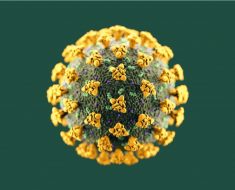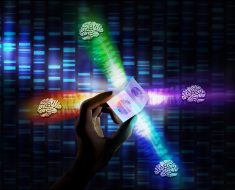Researchers say an EEG test may be able to detect brain patterns that can help identify infants and toddlers who will likely develop autistic traits later.

Getty Images
Is it possible to detect autism before symptoms develop?
New research suggests it is.
A study published in the journal Scientific Reports has concluded that patterns in brain activity can be used to predict which children will develop traits associated with autism.
This new approach to autism screening relies on data collected through electroencephalography (EEG).
EEG is a low-cost and noninvasive technology used to record electrical activity of the brain.
The investigators behind the new study collected EEG data from 181 infants at 3, 6, 9, 12, 18, 24, and 36 months of age.
They analyzed this data with computer algorithms and predicted with a high degree of accuracy which infants would later develop traits associated with autism.
By 9 months of age, the predictive accuracy of this approach was nearly 100 percent, the researchers reported.
“I would just like to emphasize the enormous potential of this technology,” William Bosl, PhD, lead author of the study and an associate professor of health informatics and clinical psychology at the University of San Francisco, told Healthline.
“If we can truly measure the brain, store the information in electronic health records, and detect pathological changes long before symptoms emerge, it could have a very positive impact on mental and neurological health,” he said.
Bosl hopes that the findings from this study will help researchers develop new therapeutic approaches with the goal of redirecting neural circuit development at a young age.
Early diagnosis can help
Autism spectrum disorder (ASD) is a neurodevelopmental condition that affects an estimated 1 in 59 children in the United States.
Autistic children tend to perceive their environments, interact with others, and learn and approach problem-solving in atypical ways.
Many of them face challenges communicating, navigating social interactions, and adjusting to changes in their routines.
While these challenges can affect autistic children from a young age, many of them remain undiagnosed for years.
This can make it harder for them to access the supports they need.
“Early diagnosis can be beneficial in that it can allow for access to supports in learning, communication, adaptive skills, and other supports at home and at school. Access to those supports means that children can learn and experience the world in a way that works for them,” Zoe Gross, director of operations at the Autistic Self Advocacy Network (ASAN), told Healthline.
For example, nonverbal autistic children can benefit from augmentative or alternative communication supports (AAC) to help them communicate.
Depending on their specific needs, autistic children may also benefit from physical therapy to promote motor skill development or occupational therapy to address sensory hypersensitivities.
Early intervention can also help autistic children develop an understanding of their condition, learn to advocate for themselves, and connect with the wider autistic community.
“Children who know they are autistic can be empowered to learn how their disability works and what supports and accommodations will help them succeed. This allows them to feel more confident in who they are, rather than feeling that they are broken or wrong,” Gross said.
However, Gross warned that early diagnosis can also have downsides if it’s used to separate autistic children from their peers or limit their opportunities.
She also raised concerns about therapeutic approaches that prioritize normalization.
“We are concerned that without more societal understanding and acceptance of disability, screening for autism in infants may lead to children being put through behavioral programs that focus on normalization rather than teaching useful skills,” she said.
“These programs seek to stop children from acting autistic, such as by forcing them to make eye contact or to repress movements like hand flapping. Autistic children should not have to grow up constantly being told that their natural behaviors are wrong and that they cannot be accepted as they are,” she added.
Screening applications
Bosl hopes that his team’s methodology might help doctors detect autism early and provide preventive interventions at a young age.
“With the risk of autism recently estimated to be 1 in 59 in the U.S., we believe every baby, at every well-baby check-up, should be screened,” he said.
“With each screening, a risk profile can be created or updated as the baby grows. We also believe that this screening may have applications for detecting many other neurocognitive or mental disorders throughout childhood and into adulthood,” he added.
Before this can happen, Bosl and his colleagues need to test their methodology in clinical settings.
“We are eager to start testing in pediatric clinics. We urgently need to raise funding to begin this next step as quickly as possible, because it takes time to collect data from a large population and track the children as they grow,” he said.
“We are seeking government (NIH) grants, but those are slow,” he continued. “I hope to find philanthropists or investors who deeply care about autism, neurodevelopmental disorders, and mental health in general because I believe this technology has the potential to change the practice of psychiatry from reactive to preventive.”
Source: Read Full Article





